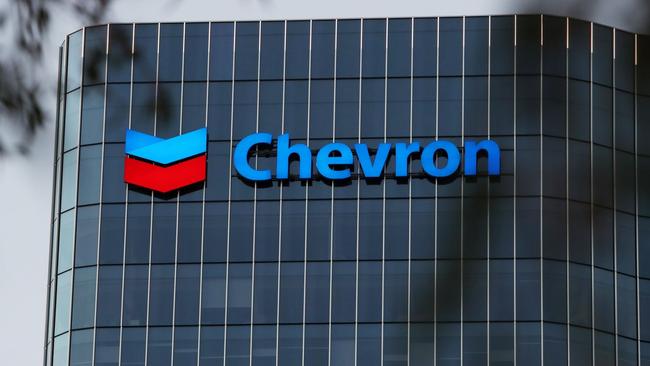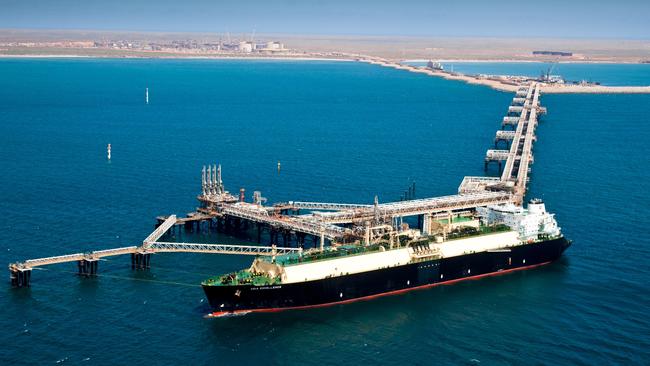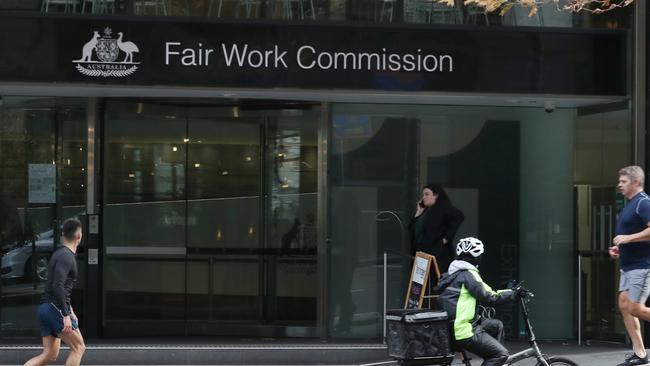Workers to consider FWC recommendations in Chevron stalemate
There’s new hope of a resolution to the industrial dispute affecting global energy markets with union workers agreeing to consider a set of recommendations to end the strike.

There’s new hope for a resolution to the industrial dispute roiling Chevron’s LNG operations with union workers announcing they will consider recommendations from the Fair Work Commission to end the strike.
FWC Commissioner Riordan proposed a set of recommendations to end the dispute on Thursday and Offshore Alliance, an amalgam of the Australian Workers Union and Electrical Trades Union, said workers would consider them overnight.
“Our members at Chevron will be tonight considering Commissioner Riordan’s recommendation carefully as it touches on some key bargaining claims,” AWU WA secretary Brad Gandy said.
“I look forward to learning our member’s thoughts about the recommendation.
“As always, we will take direction from our members in how we respond.”
Strike action is escalating at the company’s massive Wheatstone and Gorgon LNG plants in Western Australia as the union tussles with the energy behemoth over a new enterprise agreement.
The union is pushing for better pay, more consultation on roster changes, more transparency around the classification of roles at the plants and greater protections from labour hire companies.
A Chevron spokesman said the union was demanding terms and conditions “significantly above” the market standard.

The FWC is scheduled to rule tomorrow on whether to grant intractable bargaining declarations, a new provision of industrial law that pushes conflicting parties to renegotiation, with the threat of the FWC stepping in to impose its will on parties if an agreement cannot be struck.
However, Commissioner Riordan’s recommendation signals the two sides could reach an agreement without arbitration.
“The parties are on the precipice of achieving historical first enterprise agreements for these Chevron LNG facilities in Western Australia,” Mr Riordan said in his note.
“To date, a large number of issues have been settled, on a without prejudice basis, which should form the foundation of enterprise agreements between the parties for the future.”
Commissioner Riordan’s recommendations cover field loading allowances, classification, overcycle payments, accommodation, work hours, travel allowances, panel changes, salary continuances, job security and training pay.
On accommodation, Commissioner Riordan suggests workers should have to share cabins only in exceptional circumstances.
On travel, the commissioner recommends all employees receive a $7000 allowance.
“Employees who do not have Perth as their point of engagement will be paid an additional amount for all expenses associated with flights, accommodation, taxis and a per diem as outlined in the ATO Taxation Determination,” he states.
On work hours, the commissioner recommends a worker should only be obliged to complete a task after the the expiry of normal hours if the task relates to safety issues or to organise a proper handover to another employee.
The commissioner said the parties were close to an agreement and “strongly recommended” they adopt his proposals to end the dispute.

“The parties have been negotiating for these agreements for a long period of time and have spent countless hours at the negotiating table,” he said.
“These discussions have resulted in widespread agreement on the majority of provisions of the proposed enterprise agreements.
“It would be a very unfortunate circumstance if the parties did not utilise the good work that has been done during this period in adopting these agreed outcomes.
“It would be a pity and very frustrating to simply throw out these agreed positions and have the parties return to their respective logs of claims for any future arbitration.”
The parties have until 9am Friday to accept or reject the recommendation.
Chevron’s plants supply about 7 per cent of the world’s LNG and some 47 per cent of WA’s domestic gas.
Workers are pursuing a range of industrial strike actions, including sustained work stoppages, though they have pledged to keep gas flowing into the domestic market.
Chevron has been contacted for comment.



